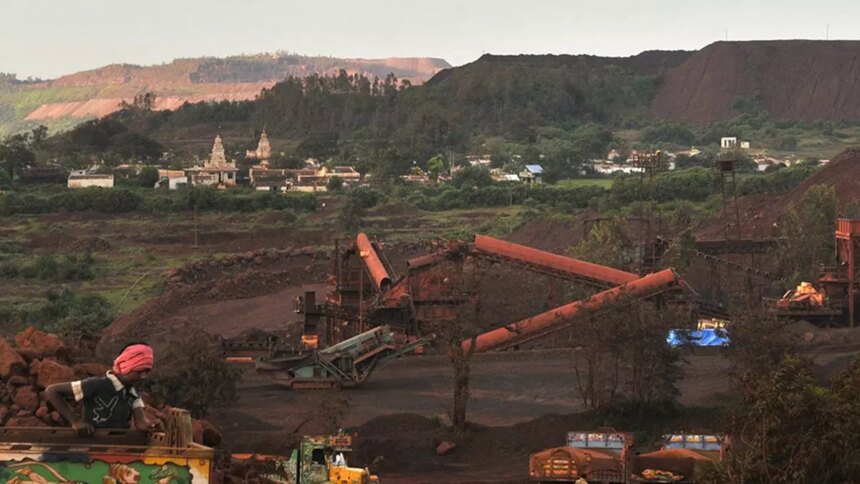The Karnataka government’s newly introduced levy on mined minerals is expected to drive up steel prices and tighten profit margins for the industry, which is already facing challenges from large-scale low-cost imports threatening its viability.
Steel manufacturers are likely to struggle to transfer these increased costs onto consumers, which will negatively impact their profitability.
The state government has outlined the imposition of taxes on minerals in two distinct phases. The first component is a mineral-bearing tax of ₹100 per tonne, applicable to all miners, and will be enforced retroactively from April 1, 2005.
The second component of the tax will differ across various categories of miners and take effect from January 2015. For auctioned mines, such as those operated by JSW Steel, the state levy will be a nominal ₹1 for every tonne of iron ore extracted. In contrast, miners from non-auctioned operations, which include companies like Vedanta, will face a tax that is three times the royalty rate, equating to 45% of the price determined by the Indian Bureau of Mines (IBM).
Public Sector Undertakings (PSUs) that had their leases renewed before and after January 12, 2015 (like NMDC) and have been in operation for 50 years will incur a tax of 22.5% each. For another group of PSUs whose leases were renewed prior to January 12, 2015 for a duration of 50 years, the new state tax will hit 45%.
The Karnataka government aims to raise an additional ₹4,200 crore through the mineral rights tax, alongside an estimated ₹506 crore from levies on mineral-bearing land.
This legislative action follows a significant ruling from a nine-member constitutional bench of the Supreme Court in July, which affirmed that individual states possess the right to levy taxes on minerals and land containing minerals within their boundaries. The court also authorized states to collect outstanding past tax dues on mined minerals back to April 2005 over a 12-year period.
The steel sector may find it challenging to impose these extra costs onto consumers amidst the backdrop of rising cheap imports, which will inevitably lead to increased production expenses and squeezed margins for steel producers, as noted by an executive from the steel industry.
Some private miners might contemplate scaling down or completely halting their operations in Karnataka, according to him. JSW Steel, Vedanta, and NMDC are among the largest iron ore mining companies operating in the state.
Ashish Kejriwal, Director of Research at Nuvama Institutional Equities, indicated that Vedanta is likely to be hit hard by the new tax, as it will be liable for both the 45% tax rate and the additional ₹100 per tonne on iron ore extraction. NMDC is also anticipated to struggle in transferring the full weight of this levy, whereas JSW Steel could see indirect consequences through increased prices from NMDC and other miners, compounded by the new ₹100 per tonne charge on its captive mines.










